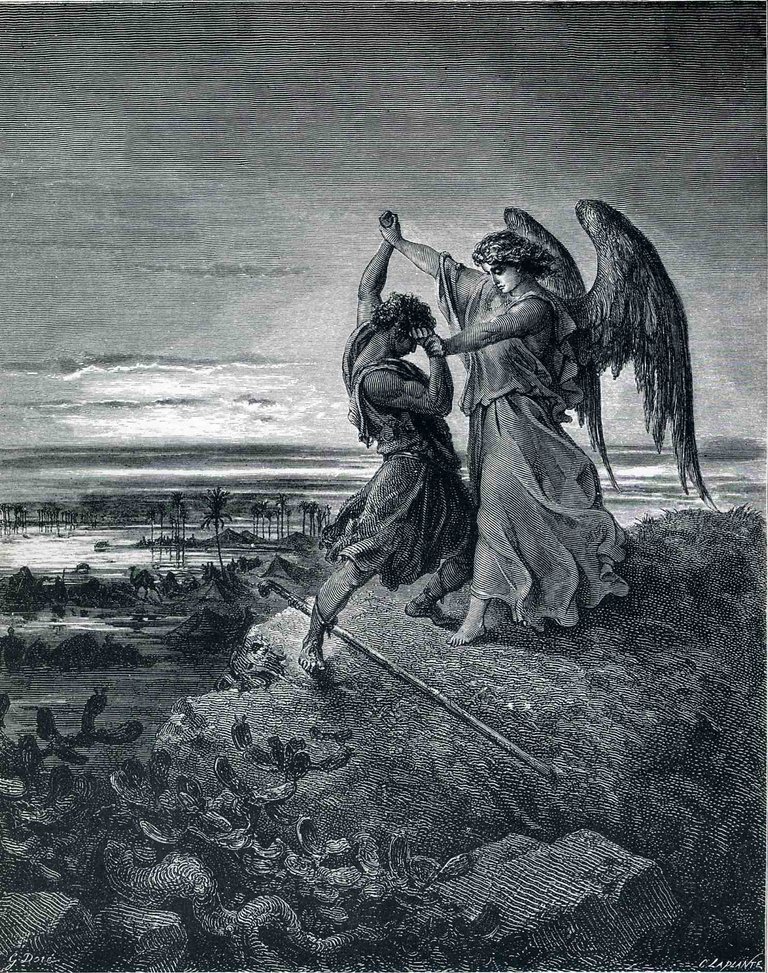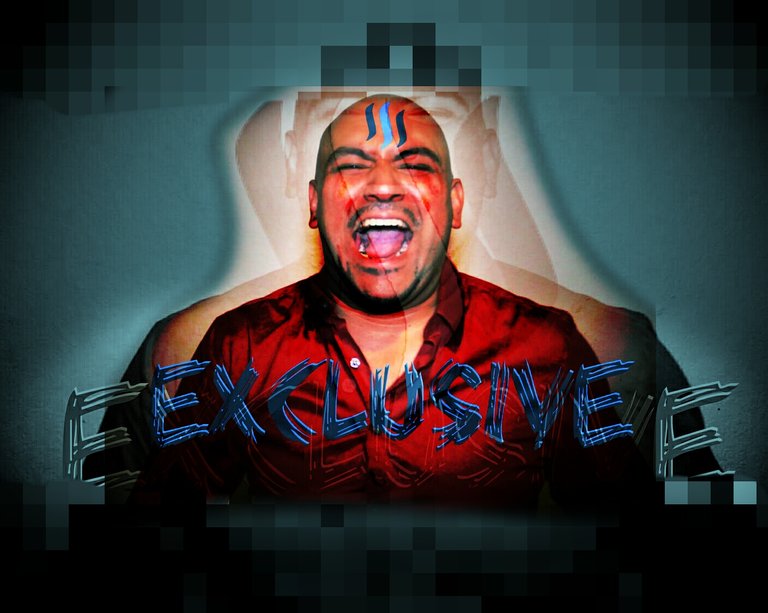
As a teenager I was diagnosed with bipolar disorder. This resulted in many strange years of ups and downs, including some on high-potency drugs that were intended to level things out emotionally, but had the unfortunate side effect of clouding and dulling the mind in such a way that I felt no longer myself - in fact, I felt very little. It was a while before I could gather the self-awareness to realize this, and the need to find a different means of managing my emotional volatility in such a way that I didn't have to sacrifice my positive emotions, my creativity, and my personality in order to do so.
My creativity is, of course, strongly attached to my bipolar moodswings. As a musician and a writer, I do some of my best work when I'm either at the top of one of those swings (highly elated) or near the bottom (deeply depressed). I find each of those states of mind, if properly channeled, can result in some very real and authentic creative output. That's why, in addition to meditation, exercise, and a few other methods, I've come to rely on creative work as a means of dealing with my emotions in a positive and non-destructive way.
It's a win-win really - my emotional state has a beneficial effect on my creativity, while being creative helps me to control those emotions - and it's one of the most valuable techniques I've ever encountered. Through these practices, I've now spent several years completely drug-free, and although I still go through moodswings day in and day out, they're much more manageable and predictable, and far less dangerous, like the motion of the tides. In fact, I've even come to view my bipolar 'disorder' (which is really better viewed as a continuum of emotional feeling rather than some kind of disease) as an important part of me, and one that helps me to feel, and therefore create, more deeply than most.
The creative outlet: a torrent of emotion

One important technique I've developed for controlling strong outbursts of emotion and channeling them outwards in non-destructive ways is to immediately begin expressing that emotion through some creative means. Often, I'll pick up an instrument and play the feeling out without any kind of restriction (I've made some of my best music this way). At other times, I'll turn to writing. I find that while music allows a more abstract expression of the qualitative feeling of the emotion, writing can help me to express it in a more organized way and also collect my thoughts about it.
As a habitual overthinker, re-reading these pieces later (especially when I can feel similar thoughts or emotions coming on) can be very revealing and oddly therapeutic, and help me to track patterns of thought that contribute to these emotional states. I often instinctively choose to write in the third person - perhaps because of the detachment that seems to come with these extreme feelings.
The short passage below is one such example of a piece, written while feeling a dark red kind of anger. When I write in this mode, it's a fast-paced, free-association kind of process that has varying results, and during which I often feel strangely as though someone else is doing the writing.
This particular piece was written in one go in under ten minutes. At that point, I was interrupted, and upon returning found that the anger had all but vanished (a good sign of its effectiveness). Given that it seemed to have reached its own conclusion anyway, and in the spirit of Coleridge's Kubla Khan, I decided to leave it as it was.
Steemit is a great place to share our creativity. I hope that by sharing this simple technique, it might provide someone else with a valuable and creative outlet for extreme emotion, and to show that even anger can be used positively.
Futility, or, From the Outside In

It started as a strange blur in the mind. A multicoloured semitranslucent shape of unidentified proportions and incognizant properties that could not at first be identified. Even at the last moment the impression was as vague as the fury one feels when punching at a pillow. In that indiscriminate eruptive moment of wrath it becomes impossible to determine subject or object, direction or definition. There is only rage and mindless whitenoise permeating through the walls of reality in such a way that the idea of sound or emotion penetrating those barriers becomes intangible and effectively nonexistent.
Was this fantastic wrath the same that Jacob felt when confronting the Angel of the Lord? One wonders what the angel felt. Are angels blessed with a kind of detached, impersonal emotion, or even that of the lowly, all-too-localized human heart? Or are they mere automatons; reflections of a consciousness that has transcended vulgar fleshfeeling and reached a higher state of karmic numbness? More to the point, would this make them greater or lesser than theologically challenged mortals such as you or I? Where exactly do emotions stand on the continuum of cosmic consciousness and the hierarchy of divine right?
All these thoughts, contained in a more or less coherent train of dusty, ancient musings and spontaneously combusted sparks of insight, crossed through his mind as he opened cupboard and refrigerator in alternating and frustrating succession, searching in vain for a potential meal that would satisfy his peculiar and ever-changing tastes on what was a decidedly average Friday evening in what had been a decidedly uneventful week of life. “Too much rajasic activity in the mind” is what his sometime guru would have said to this strangely contained outburst (though it felt anything but in the mind of the outburster). He even tried punching a pillow after all, in the spirit of trying new things (his usual method involved throwing highly breakable objects at very unforgiving surfaces), but this bizarre cliché did little except to illustrate the futility of his position. There was no escape for inner anger in the outside world. That fucking guru (blessed be he) was, and had always been, right about that.
Upon further consideration, he decided that betrayal is a strange thing. Strange because it’s largely impersonal. The reason for this is disarmingly simple, as it turns out. Betrayal is only felt by the recipient, and therefore requires the permission of the betrayee to be felt. Where there is no perceived betrayal, it therefore does not exist. The anger attached to the betrayal, then, must work the same way.
He therefore decided to revoke its permission forthwith.
I too am Bipolar and am trying to bring awareness and find making videos and being an actor very theraputic.. have a look at my post and see if you might be able to contribute

https://steemit.com/disorder/@mrwang/extremely-awkward-and-incredibly-honest
https://steemit.com/disorder/@mrwang/episode-1-awareness
This is a terrific post. Check this out: https://www.democracynow.org/2017/12/28/lithium_love_and_losing_my_mind
I too am either bipolar or something very similar.